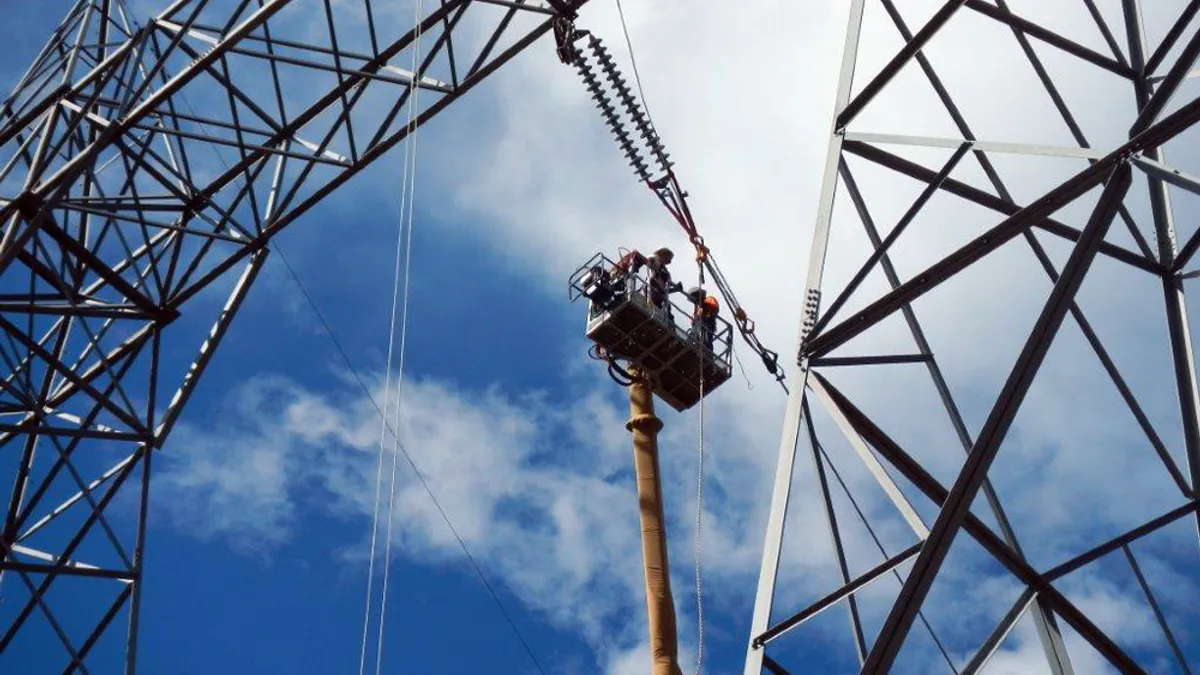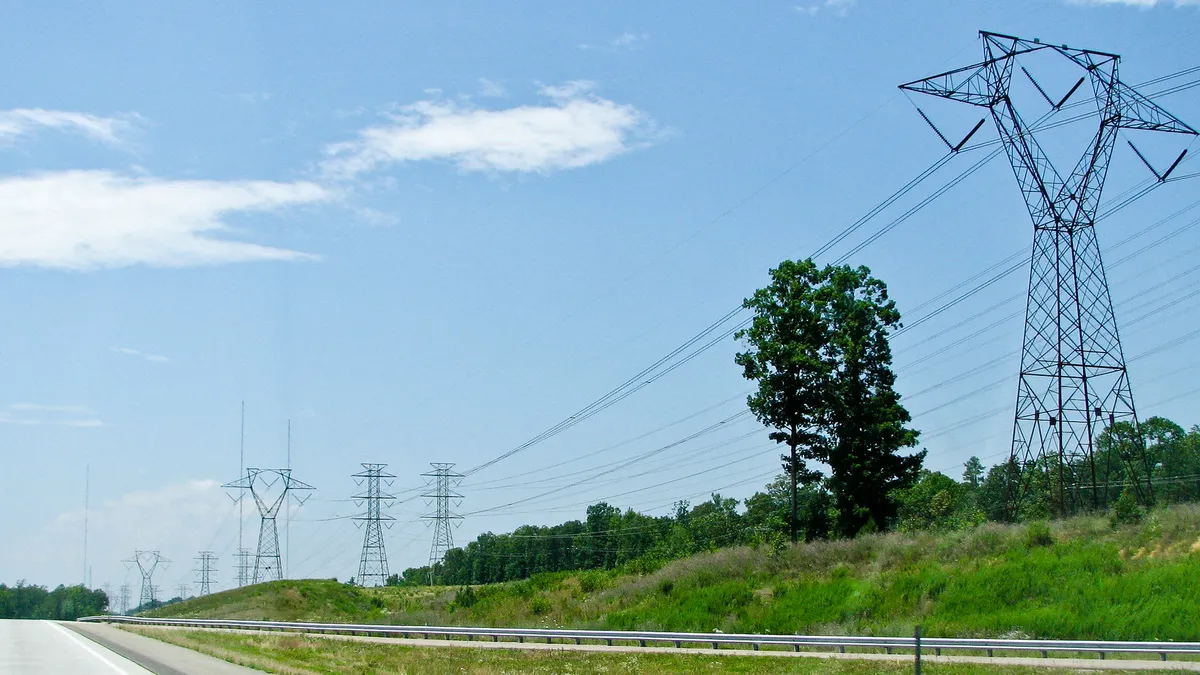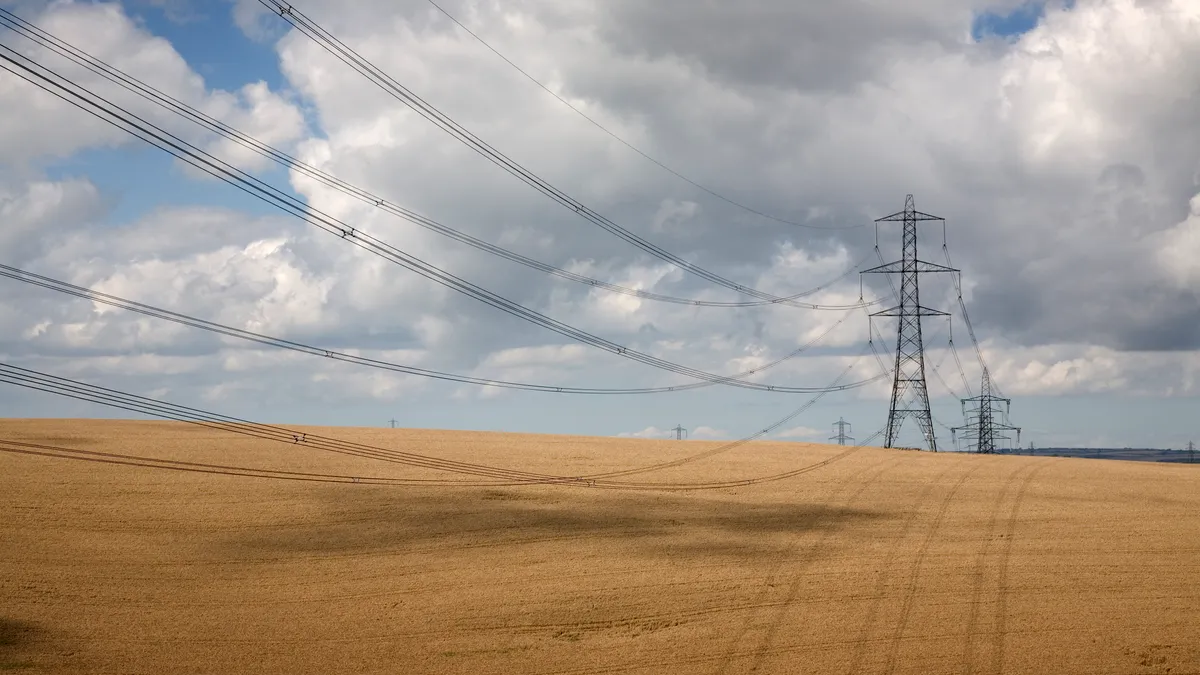Exelon and its subsidiaries expect to operate under the pandemic preparedness plan through the end of summer, Commonwealth Edison CEO Joe Dominguez told Utility Dive on Tuesday.
President Donald Trump also said on Monday the new outbreak could stretch into August, matching the Exelon utilities' pandemic response plan.
ComEd, serving Chicago and much of northern Illinois, has been responding to the spread of the novel coronavirus ahead of its fellow subsidiaries.
"Chicago was one of the first areas in the country to identify the new cases," putting ComEd at the forefront of utilities that had to react, Dominguez said. Exelon subsidiaries are "all moving on the same continuum, but not necessarily at the same speed ... we just go to that a little sooner."
ComEd is not currently facing reliability impacts, said Dominguez, but scheduling delays due to the coronavirus will delay policy work in the state legislature. This diminishes the chances for a passage of a clean energy bill that would empower state regulators to exit the PJM Interconnection, as the Illinois legislature is expected to adjourn at the end of May.
Disruptions in the power sector
"The load profile of the United States is shifting right now," Scott Aaronson, vice president of security and business continuity at the Edison Electric Institute (EEI), told Utility Dive. "What that looks like remains to be seen."
ComEd is watching how the virus and the response to the virus affect load, "as we see businesses shut down," according to Dominguez. The coronavirus is "not a major structural change to energy consumption patterns. I don't think we're thinking of redesigning [when nuclear and other resources are run] around an event that has that kind of time limitations," he said.
One potential concern for ComEd and other utilities in the country, however, is losing staff.
"Massive absentee rates" would likely lead to reduced or scattered shifts, he said, as greater absenteeism "could impact restoration time in the case of storm" or other outages.
Dominguez is "most concerned of an operational failure," or the potential for critical infrastructure needs repairs and not having the "workforce to restore it."
While the utility is in constant contact with the regional transmission operator in the area, PJM Interconnection, Dominguez does not anticipate that lags in restoration work will impact PJM unless "it's on a massive scale."
"I can report all of our businesses are doing well, our employees are responding well. We are in the early stages of it. We'll have to continue to monitor it," he said.
However, while ComEd is not pausing its programs, some aspects may be curtailed.
ComEd will be limiting the number of home audits it does, which is necessary to make homes and businesses more efficient. "A lot of the work we're doing to make the grid more efficient through voltage automation, that's stuff we're knocking down every day," Dominguez said.
He anticipates social distancing policies and response to the virus will also impact distributed solar interconnection requests eventually.
"It's just too early to tell if there's going to be a change in the flow," he said.
Many electric utilities are similarly acting under a pandemic preparedness plan, said Aaronson.
"As our companies look at what it means to be in a pandemic environment ... it is prudent for us to stress test, it is prudent for us to overprepare for those challenges that manifest not in day 10 but in week 10," Aaronson said.
EEI has not surveyed its utility members on the duration of their planning horizons and cannot comment on Exelon's contingency plans. However, "it is safe to say those companies are taking urgent and aggressive action today," Aaronson said.
Woes of an inevitable legislative slowdown
While remaining optimistic about the impacts on utility operations, ComEd is watchful of a bill in the state legislature that would impact the economic competitiveness of the nuclear power plants in northern Illinois.
"What's concerning is that the virus is impacting scheduling of legislative days ... slowing down discussion on policy," Dominguez said.
The Clean Energy Jobs Act in Illinois, which Exelon supports, would give the Illinois Commerce Commission (ICC) the authority to stop the state's participation within PJM. The Federal Energy Regulatory Commission approved a rule in December to limit the competitiveness of resources in the capacity market that receive state subsidies, and Dominguez said this would impact nuclear resources, which rely on Illinois' zero-emission credit program to compete in the capacity market.
"FERC has really thown a hot potato into the laps of [state] energy regulators," he said.
State regulators must act quickly ahead of the next PJM capacity auction, Dominguez said, but the coronavirus delays in the legislative session could limit options for Illinois regulators to react to the federal rules.
The ICC has started a stakeholder process to look into resource adequacy in the state, which would help support subsidized clean energy resources. But regulators do not have the same leverage as other state commissions considering the impact of RTO/ISO rules regarding state incentives on the energy market.
"The [Illinois] legislature has to speak to give the commission that power," he said.
Dominguez has heard speculation about delays to the legislative period, which ends May 31, but has not heard anything from the legislative leaders. The Illinois legislature's session has been canceled for the week of March 16.
However, Dominguez said the utility is working with legislators, regulators and the governor's office to address the spread of the virus.
Gov. J.B Pritzker "reached out to us very early on in the [pandemic response] process to talk to us about how we're going to help customers," Dominguez said.
In some parts of the country, like California, the call to protect customers from losing critical utility service, including gas and electricity, is coming from governors and mayors, but many large utilities are also offering that voluntarily. ComEd and other Exelon subsidiaries are suspending service disconnections and waiving new late payment charges until at least May 1.
State regulators in Illinois have also had "a tremendous part" in determining "what burdens we could eliminate" for consumers and addressing supply chain issues, Dominguez said.
The stress for assuring supplies is felt across other utilities as well, Aaronson said.
"We're hearing different things" about access to safety equipment and on-hand supply, he said. EEI is trying to understand what the gap is in personal protective equipment supplies for utility workers most exposed to potential coronavirus carriers.
ComEd talked to regulators about safety gear access and about adapting rules for regulatory processes that involve in-person customer contact.
For instance, regulators are considering adjusting the distributed solar interconnection process to no longer require in-person signatures, getting customer approval remotely. "We're at the very beginning [stages], but we're having a lot of productive conversations," Dominguez said.























